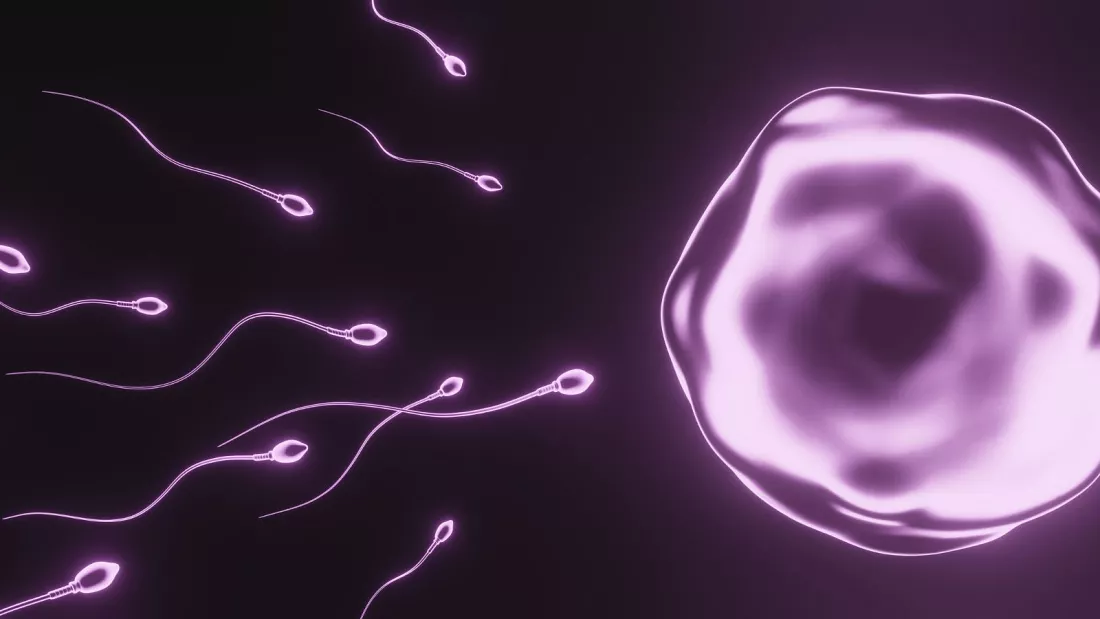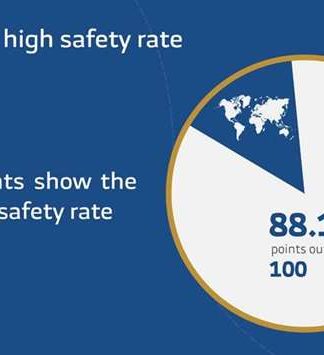Sperm count drop is accelerating worldwide and threatens the future of mankind, study warns
Researchers say global sperm counts have dropped by a “staggering” 50 per cent over the past five decades – and the decline is gaining pace.
Researchers say global sperm counts have dropped by a “staggering” 50 per cent over the past five decades – and the decline is gaining pace. – Copyright Canva
By Natalie Huet • Updated: 15/11/2022 – 14:38
Sperm counts worldwide have halved over the past five decades, and the pace of the decline has more than doubled since the turn of the century, new research shows.
The international team behind it says the data is alarming and points to a fertility crisis threatening the survival of humanity.
Their meta-analysis looked at 223 studies based on sperm samples from over 57,000 men across 53 countries.
Research into falling sperm counts finds ‘alarming’ levels of chemicals in male urine samples
It shows for the first time that men in Latin America, Asia, and Africa share a similar decline in total sperm counts and concentration as previously observed in Europe, North America, and Australia.
The authors warn that the mean sperm count has now dropped dangerously close to the threshold that makes conception more difficult, meaning couples around the world may encounter problems having a baby without medical assistance.
The findings, published on Tuesday in the journal Human Reproduction Update, serve as “a canary in a coal mine,” said Professor Hagai Levine, the study’s lead author from the Hebrew University of Jerusalem’s Hadassah Braun School of Public Health.
“We have a serious problem on our hands that, if not mitigated, could threaten mankind’s survival,” he said in a statement.
Can COVID shrink your penis? One man in the US believes the virus irreversibly shortened his manhood
A 50% drop in sperm counts
As part of a team also featuring Professor Shanna Swan at the Icahn School of Medicine in New York, along with researchers in Denmark, Brazil, Spain, Israel, and the USA, Levine studied sperm count trends in regions that had not been reviewed previously.
That same team had already reported in 2017 an alarming decline in sperm counts across the Western world.
In this latest study, they found that average sperm counts all around the world had fallen by over 50 per cent over the past five decades.
It looks like a pandemic. It’s everywhere. And some of the causes may stay with us for a very long time
Professor Hagai Levine
Hebrew University of Jerusalem
Data from 1973 to 2018 showed sperm counts dropped on average by 1.2 per cent per year. Data from after the year 2000 showed a decline of more than 2.6 per cent per year.
“It’s just unbelievable. I couldn’t believe it myself,” Levine told Euronews Next.
The fact that these findings were confirmed across the rest of the world points to a global crisis that could be compared to climate change, according to Levine.
“As in climate change, the impact could be different in different places, but generally the phenomenon is global and should be treated as such,” he added.
“It looks like a pandemic. It’s everywhere. And some of the causes may stay with us for a very long time”.
Scientists find pollution is reaching babies in the womb and slashing boys’ future sperm counts
Falling chances of conception
The researchers say that while sperm counts are “an imperfect proxy for fertility,” they are closely linked to fertility chances.
They explain that above a threshold of 40–50 million/ml, a higher sperm count does not necessarily imply a higher probability of conception.
On the other hand, below that threshold, the probability of conception drops off rapidly as sperm count declines.
“On a population level, the drop in mean sperm count from 104 to 49 million/ml that we report here implies a substantial increase in the proportion of men with delayed time to conception,” the study’s authors wrote.
Brain inflammation caused by air pollution is reducing sperm counts, new study finds
While their research did not explore the causes of this drop in sperm counts, the authors say it reflects “a global crisis related to our modern environment and lifestyle,” and they point to the disrupting role of chemicals on our hormonal and reproductive systems.
They add that sperm counts are also an indicator of men’s health, with low levels associated with an increased risk of chronic disease, testicular cancer, and a decreased lifespan.
The tipping point for mankind?
The findings were published on the day the global population passed the 8 billion mark, putting more pressure on the planet’s limited natural resources.
“Philosophically, maybe the decline in sperm count and infertility is somehow the way of the world to balance what’s going on,” Levine told Euronews Next.
“But, you know, that’s just a thought. It’s not a scientific thought”.
Scientists find IVF babies born from frozen embryos are at a greater risk of cancer
He said the findings should be of concern to everyone – regardless of their opinions on how many human beings the planet needs right now.
“Sperm count is a very good measure of global health and of our future. And regardless of the number of people you think we need on Earth, you don’t want it to be determined by hazardous events rather than our own choices,” Levine said.
“I think we have to monitor it very carefully at the global level, at the population level, at the local country level, and also the personal level,” he added, calling on authorities to improve lifestyles and limit human exposure to manmade chemicals through better regulation.
“Sometimes there is a tipping point and the system collapses at once. It means something is happening with our ecological systems, our reproductive systems – and at some point, it’s just too much”.






























